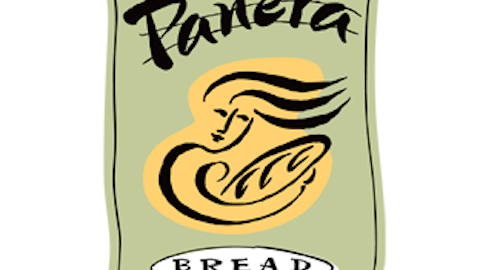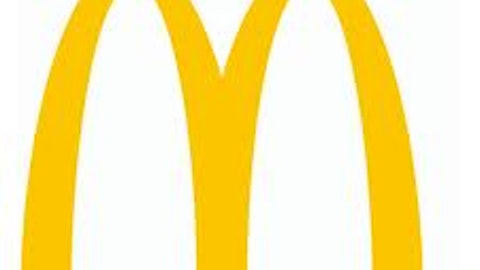Now more than ever, a comfortable retirement depends on secure, stable investments. Unfortunately, the right stocks for retirement won’t just fall into your lap. In this series, I look at 10 measures to show what makes a great retirement-oriented stock.

The right stocks for retirees
With decades to go before you need to tap your investments, you can take greater risks, weighing the chance of big losses against the potential for mind-blowing returns. But as retirement approaches, you no longer have the luxury of waiting out a downturn.
Sure, you still want good returns, but you also need to manage your risk and protect yourself against bear markets, which can maul your finances at the worst possible time. The right stocks combine both of these elements in a single investment.
When scrutinizing a stock, retirees should look for:
- Size. Most retirees would rather not take a flyer on unproven businesses. Bigger companies may lack their smaller counterparts’ growth potential, but they do offer greater security.
- Consistency. While many investors look for fast-growing companies, conservative investors want to see steady, consistent gains in revenue, free cash flow, and other key metrics. Slow growth won’t make headlines, but it will help prevent the kind of ugly surprises that suddenly torpedo a stock’s share price.
- Stock stability. Conservative retirement investors prefer investments that move less dramatically than typical stocks, and they particularly want to avoid big losses. These investments will give up some gains during bull markets, but they won’t fall as far or as fast during bear markets. Beta measures volatility, but we also want a track record of solid performance as well.
- Valuation. No one can afford to pay too much for a stock, even if its prospects are good. Using normalized earnings multiples helps smooth out one-time effects, giving you a longer-term context.
- Dividends. Most of all, retirees look for stocks that can provide income through dividends. Retirees want healthy payouts now and consistent dividend growth over time — as long as it doesn’t jeopardize the company’s financial health.
With those factors in mind, let’s take a closer look at McDonald’s.
| Factor | What We Want to See | Actual | Pass or Fail? |
|---|---|---|---|
| Size | Market cap > $10 billion | $95.5 billion | Pass |
| Consistency | Revenue growth > 0% in at least four of five past years | 4 years | Pass |
| Free cash flow growth > 0% in at least four of past five years | 4 years | Pass | |
| Stock stability | Beta < 0.9 | 0.39 | Pass |
| Worst loss in past five years no greater than 20% | (9.3%) | Pass | |
| Valuation | Normalized P/E < 18 | 19.46 | Fail |
| Dividends | Current yield > 2% | 3.2% | Pass |
| Five-year dividend growth > 10% | 13.9% | Pass | |
| Streak of dividend increases >= 10 years | 36 years | Pass | |
| Payout ratio < 75% | 57.5% | Pass | |
| Total score | 9 out of 10 |
Source: S&P Capital IQ. Total score = number of passes.
Since we looked at McDonald’s last year, the company has held onto its nine-point score for the third year in a row. Only a slightly high valuation has held McDonald’s back from a perfect 10, even as the stock has fallen by 5% over the past year.
After weathering the financial crisis quite well, McDonald’s has had a tough time lately. In January the company posted negative same-store sales for the second time in four months, with sales falling around the world. Only the U.S. market managed a slight gain.
A big part of the challenge McDonald’s faces is the fact that healthier food offerings have become more popular. Chipotle Mexican Grill, Inc. (NYSE:CMG), which was originally a spinoff from McDonald’s, has enjoyed huge growth because of its quality ingredients, despite having a very simple menu. Panera Bread Co (NASDAQ:PNRA) has also driven sales by emphasizing quality and tapping into a demographic that has more disposable income to spend.
But McDonald’s also faces competition from more traditional challengers. Burger King Worldwide Inc (NYSE:BKW) has renewed its efforts to regain its former glory by bulking up its menu. Meanwhile, in emerging markets, Yum! Brands, Inc. (NYSE:YUM) remains McDonald’s archrival, with KFC in particular going head-to-head against the Golden Arches for Chinese supremacy.
Interestingly, McDonald’s has made a recent push toward sustainability. By switching its fish supply to abundant Alaskan pollock, McDonald’s has climbed onto a bandwagon that has seen other major food-sellers hopping on, and the company has demonstrated a continued commitment to ethical practices after agreeing to stop using gestation crates in the next decade.
For retirees and other conservative investors, decades of dividend growth arguably make up for a somewhat pricey valuation. With shares offering a rare decline, retirement investors have an opportunity to buy McDonald’s on a dip — and that’s something that has historically paid off with extraordinary long-term gains.
The article Will McDonald’s Help You Retire Rich? originally appeared on Fool.com and is written by Dan Caplinger.
Fool contributor Dan Caplinger has no position in any stocks mentioned. The Motley Fool recommends Burger King Worldwide, Chipotle Mexican Grill, McDonald’s, and Panera Bread. The Motley Fool owns shares of Chipotle Mexican Grill, McDonald’s, and Panera Bread.
Copyright © 1995 – 2013 The Motley Fool, LLC. All rights reserved. The Motley Fool has a disclosure policy.





